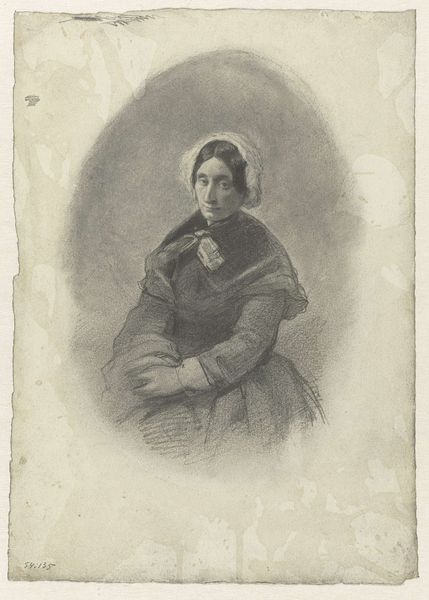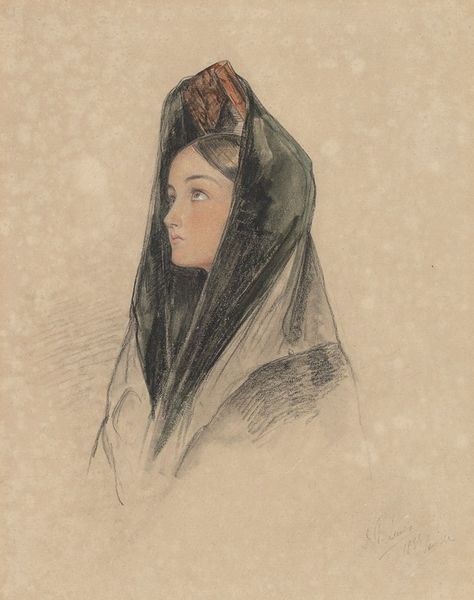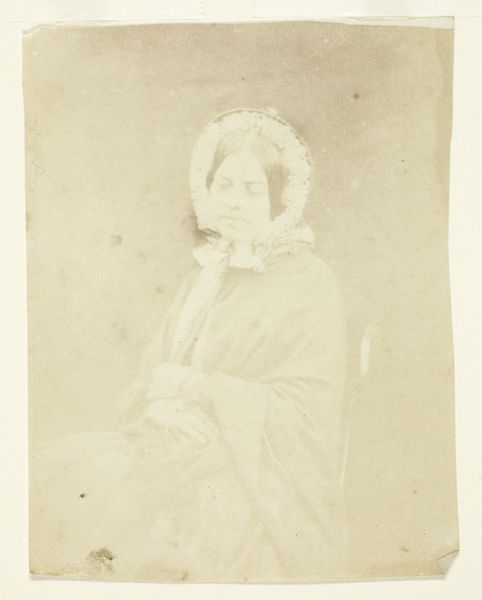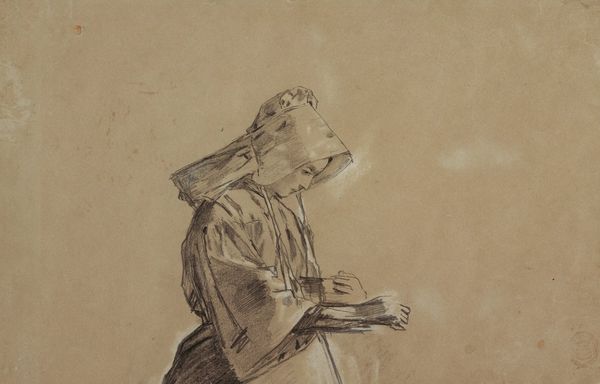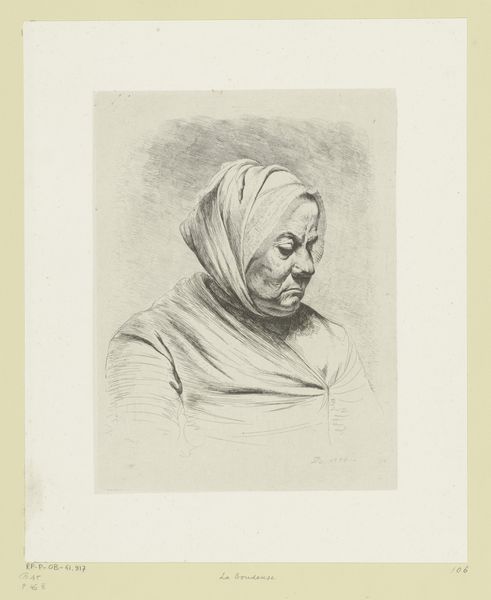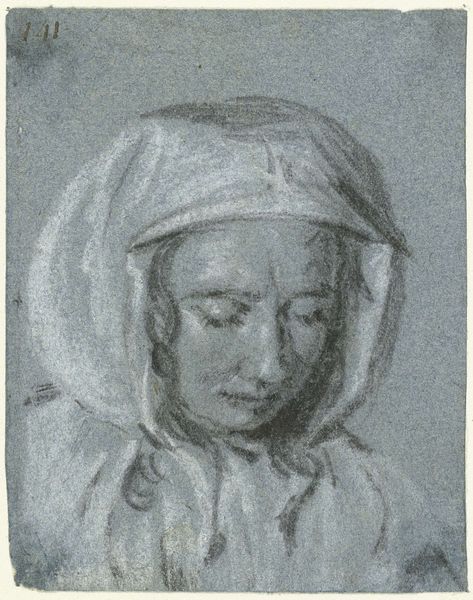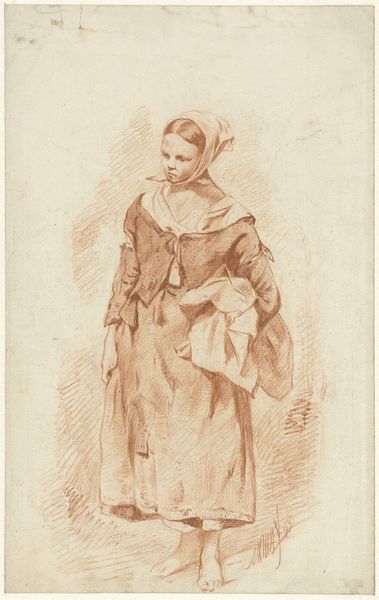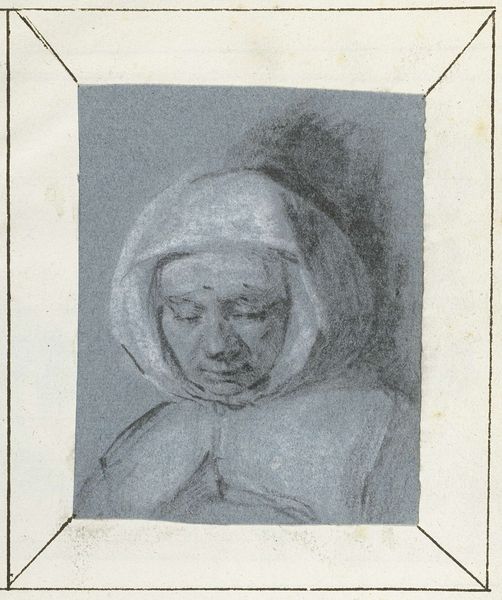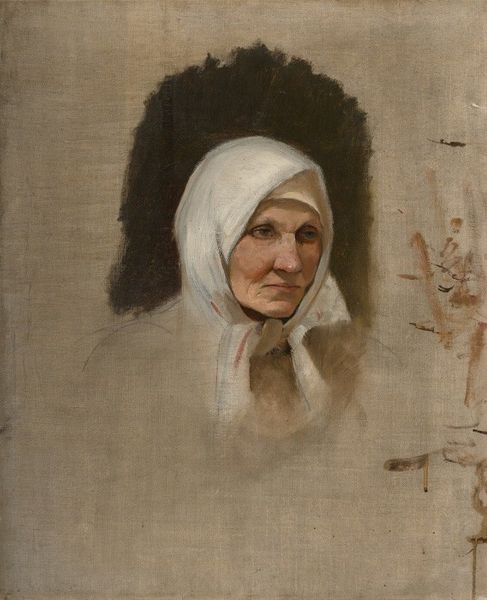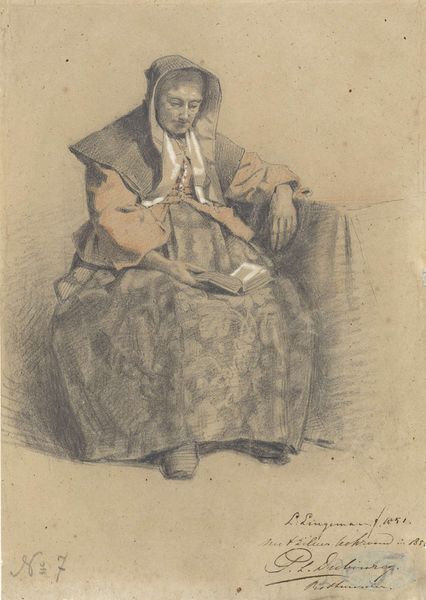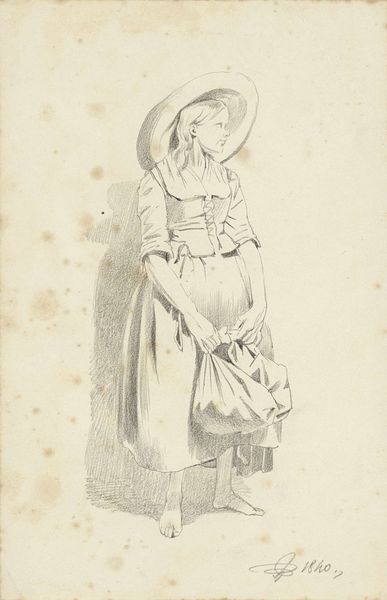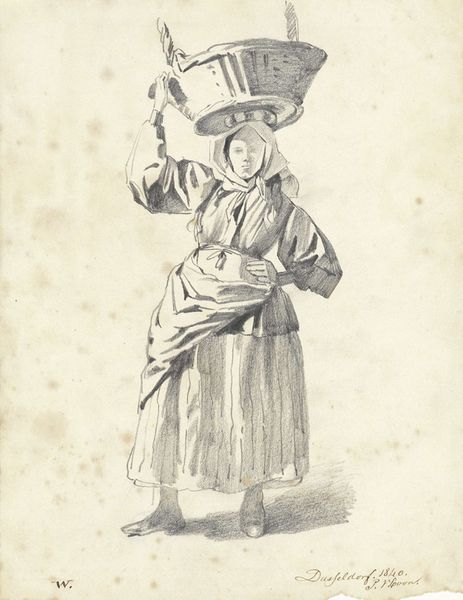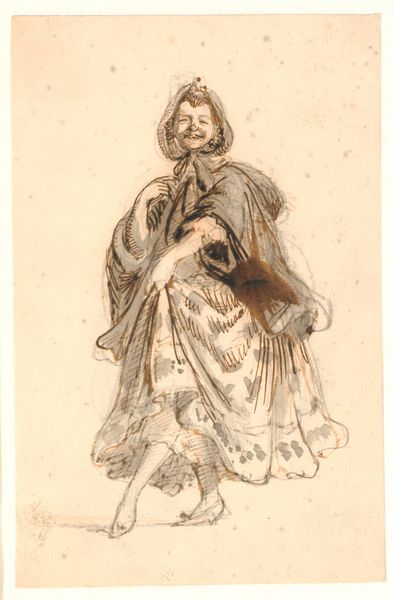
Dimensions: height 240 mm, width 169 mm
Copyright: Rijks Museum: Open Domain
Editor: This is "Portret van Theresia A. A. Allebé," a drawing in pencil and charcoal on paper by August Allebé, dating back to possibly 1858 or 1859. It’s so delicate! There's almost a melancholic feeling about it. What strikes you when you look at it? Curator: What I find fascinating is how this portrait sits within the rise of the middle class and their aspirations. Portraiture, once largely reserved for the aristocracy, became increasingly accessible. August Allebé here offers a window into that social shift. Does the depiction feel democratic to you? Editor: In a way, yes. It’s not idealized or overly grand. The woman appears… relatable, I suppose. So, was this shift reflected in exhibition spaces too? Curator: Absolutely! Museums started displaying portraits of 'ordinary' citizens, reflecting a changing sense of who was deemed worthy of representation in the public sphere. These artworks became sites for negotiating social identities and power dynamics. Note how the detail isn’t lavish, but quite specific, signaling her particular place, her individuality within a social frame. Editor: I see what you mean. The accessories aren't extravagant, but meticulously rendered. Do you think that precision served a specific purpose? Curator: Undoubtedly. It reflects a desire for accuracy, almost a scientific observation of the sitter, fitting within the Realist movement's values. How might such realism impact the role of portraiture at the time? Editor: I suppose it democratized art, portraying a wider spectrum of society, making it more relatable and reflective of the world as people actually experienced it. Curator: Precisely! And understanding the political landscape surrounding these portraits provides invaluable insights into Victorian society and its values. This look at Theresia becomes much bigger than one drawing on a piece of paper. Editor: Thanks, I hadn’t thought about the societal impact. This has changed the way I look at portraiture completely!
Comments
No comments
Be the first to comment and join the conversation on the ultimate creative platform.
